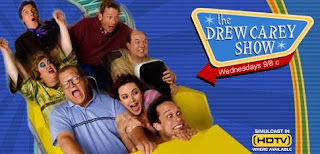 This
has always been one of my favorite holidays, especially when the kids
were little. Taking them trick-or-treating and seeing them so excited
and happy was one of the true joys of parenthood. And then eating the
candy they collected was fun too. Of course there’s always that one
eccentric house. We had a dentist who gave out toothbrushes. Thank
goodness he wasn’t a proctologist.
This
has always been one of my favorite holidays, especially when the kids
were little. Taking them trick-or-treating and seeing them so excited
and happy was one of the true joys of parenthood. And then eating the
candy they collected was fun too. Of course there’s always that one
eccentric house. We had a dentist who gave out toothbrushes. Thank
goodness he wasn’t a proctologist.And where I liv
 e,
near UCLA, there was always a second wave of trick-or-treaters. After
the kids had turned in for the night, sorority girls in yummy costumes
would ring the bell. I’d be holding the candy bowl for them in one
hand and my Emmy in the other.
e,
near UCLA, there was always a second wave of trick-or-treaters. After
the kids had turned in for the night, sorority girls in yummy costumes
would ring the bell. I’d be holding the candy bowl for them in one
hand and my Emmy in the other.During Matt & Annie’s elementary school years there was also the annual Halloween carnival. This was a public school catering to the local neighborhood but we were hardly a typical neighborhood. One year I volunteered to make snow cones and Hugh Hefner and his six bimbos strolled up to my cart. He had a kid in the school. A noted soft-porn actress whose children attended the school offered this for the silent auction: A two hour nude session where you could photograph or paint her. The principal graciously declined that offer, but I bet it would have brought in a lot more money than the autographed WINGS script I donated.
For the school’s “Haunted House” Gene Simmons participated. He would pop up and stick out that four-foot tongue. One mother was so freaked she literally sued the school.

Ah, good times.
One thing I learned though -- Halloween is an OUTDOOR holiday.
My son’s birthday is November 2nd. (Happy upcoming birthday, Matt!). When he turned five Halloween night fell on a Saturday. So for his party we invited a bunch of his friends to the house where I would take them all out trick-or-treating and then they’d come back for pizza and cake. 5-7 PM. No muss. No fuss. Great plan.
Except it rained. No, it POURED.
First off, as parents deposited their kids they asked if we’d take siblings since they couldn’t take them trick-or-treating in the rain. Of course we said yes, and so at 5:00 I had forty screaming crazed children running around my house – chasing each other with hatchets, and fairy wands, and Star Wars blasters. After relentlessly trying to wrangle this supercharged mob I finally sat down on the stairs and took a breath. I was so proud of myself. I had gotten through it. It’s almost 7. Then I checked my watch. 5:20.
If you have little kids enjoy these precious Halloweens. Soon enough they’ll outgrow you, want to be with their friends instead, and trade blasters for tequila shooters. At least I still have my memories… and the sorority girls keep coming around.
One last Halloween note: I’ve always found it odd that Jehovah’s Witnesses don’t believe in this holiday so they stay home…on the only night of the year when people would actually open their doors to them.
Happy Halloween.
Boo!
This is a repost from several Halloweens ago.
















































